KIA Niro: High Voltage System
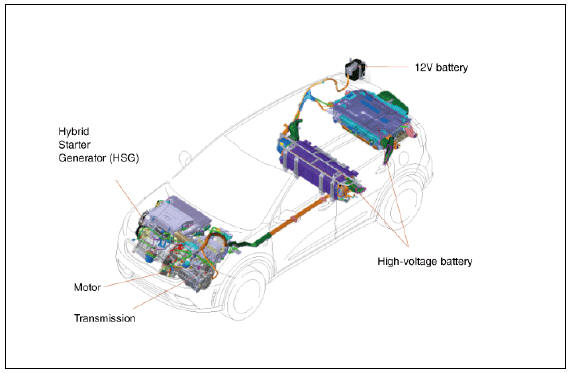
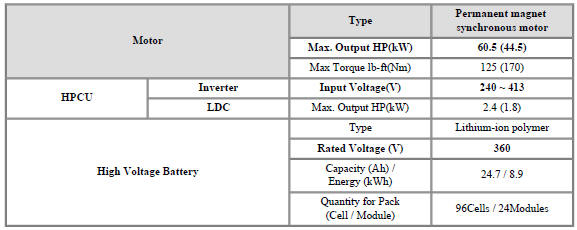
Vehicle components
12V auxiliary battery
The 12V auxiliary battery is located in the right side of the luggage room, and powers all of the vehicle's standard electronics like radio, air conditioner, etc. Also, it powers the HPCU (Hybrid Power Control Unit) which controls high voltage current to main electronic systems like the motor.
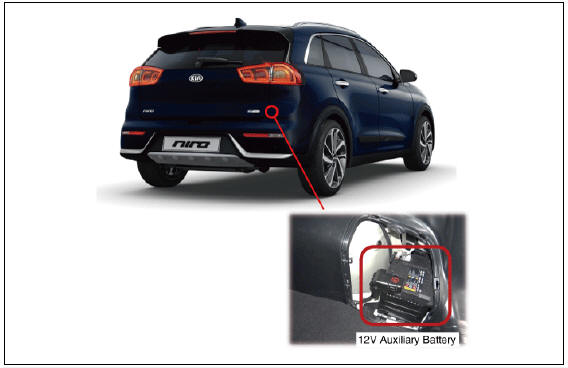
Motor
The motor of the PHEV converts electrical energy into motive force with a Max. power of 60.5Hp (44.5kW) and Max. torque of 125lb-ft (170Nm).
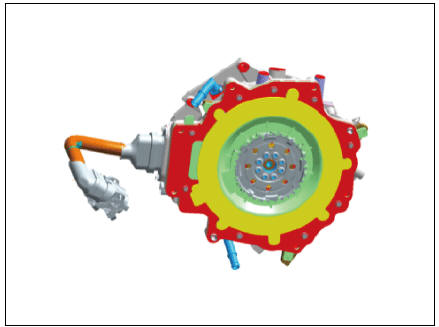
High voltage battery system
The HPCU includes an Inverter and LDC (Low Power DC-DC Converter) in one housing. The inverter converts DC to AC to supply electricity to the motor. It also converts AC to DC to charge the high voltage battery. The LDC transfers high voltage electricity to 12 voltage to charge 12V auxiliary battery.
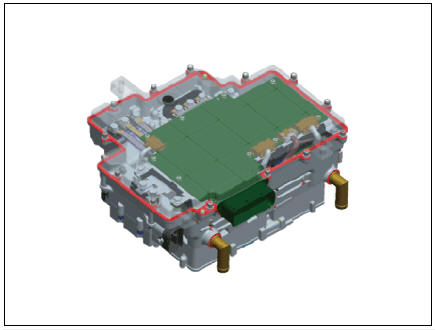
High voltage battery system
The High voltage battery system supplies and stores electric energy to traction motor and it is a Lithium ion polymer battery with specifications, 360V / 24.7Ah / 8.9kWh. It is located under the rear seat and under the luggage board of the Niro.
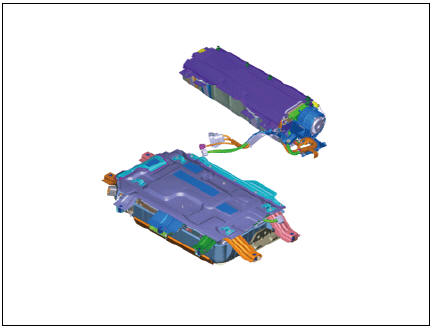
Hybrid Starter Generator (HSG)
The HSG restarts the engine at HEV mode and also charges the high voltage battery while driving, that is generator for hybrid vehicle.
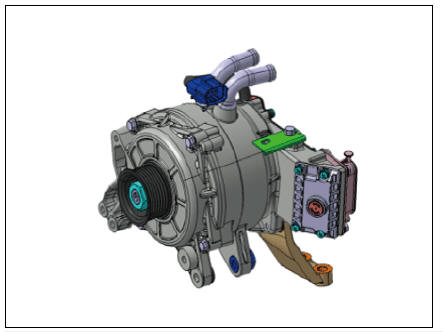
On-Board Charger (OBC)
The OBC is the battery charging equipment that converts external AC to DC to charge the high voltage battery.
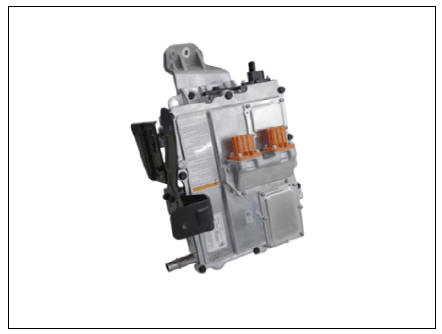
High Voltage Orange Cabling
The High Voltage cabling is orange, per SAE standard. Cables run under the floor of the vehicle and connect the High Voltage Battery to the HPCU, Motor, LDC, Inverter, OBC and other High Voltage components in front of the vehicle.
The presence of orange cables under the hood, on the under-floor battery compartment, or orange shielding under the car, identifies the vehicle as an electric vehicle.
Warning
High Voltage Cables
- Never cut or disconnect the high voltage orange cabling and connectors without first disabling the system by removing the safety plug.
- Exposed cables or wires may be visible inside or outside the vehicle. Never touch the wires, cables, connecters, or any electric components before disabling the system, to prevent injury or death due to electrical shock.
READ NEXT:
 Airbag system (SRS: Supplemental Restraint System)
Airbag system (SRS: Supplemental Restraint System)
Airbag
Seven airbags are installed in the Niro, located in standard area of the
vehicle so that the first responder can find them
immediately. Before emergency procedure, make sure the vehicle ignition switch
is turned off, disconnect the negat
 Initial Response: Identify, Immobilize and Disable
Initial Response: Identify, Immobilize and Disable
The following procedures should be used whenever you are dealing with a Niro
at an emergency scene. All other operations should
be consistent with your department's standard operating procedures or guides.
When a Hybrid is damaged in a crash, th
SEE MORE:
 Lumbar Support Units
Lumbar Support Units
Removal
Disconnect the negative (-) battery terminal.
Remove the front seat back cover.
(Refer to Body - "Front Seat Back Cover")
Disconnect the lumbar support motor connector (A).
Separate the retaining clips (A) from t
 Troubleshooting - Suspension System
Troubleshooting - Suspension System
Symptom:
Heavy weight feeling on steering wheel
Expected cause - Countermeasure
Faulty on front wheel alignment - Adjust or
repair
Over rotation resistance of lower arm
ball joint - Replace
Over rotation resistance of strut
b
Categories
- Home
- KIA Niro EV, Hybrid - Second generation - (SG2) (2021-2024) - Owner's manual
- Kia Niro - First generation - (DE) (2017-2022) - Service and Repair Manual
- Contact Us
